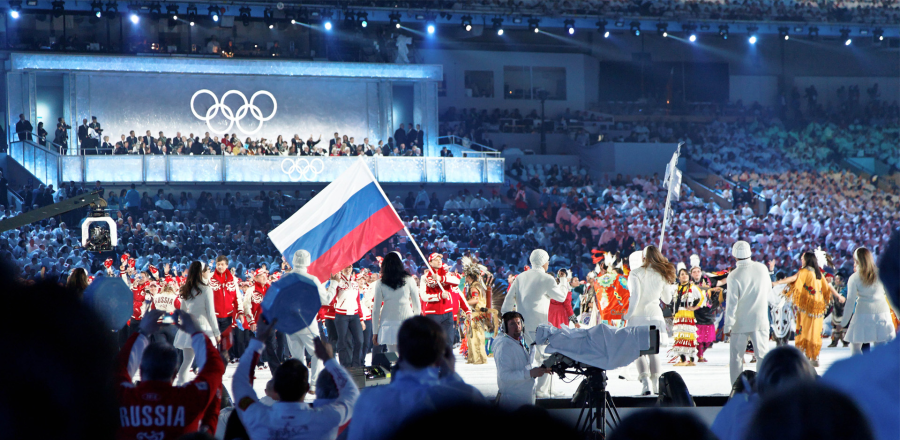The Winter Olympics are just a few months away, and memories kindle for winter sports fans both in the United States and abroad.
There’s the great ones like the “Miracle on Ice,” perfect figure skating judges scores from Torvill and Dean, five gold medals in one Winter Games from speed skater Eric Heiden, among other things.
Then there’s the heartwarming stories, from the Jamaican bobsled team, to ski jumper Eddie “the Eagle” Edwards.
And then there’s the downright shameful and disgusting, from Tonya Harding, to figure skating judges at the 2002 Games in Salt Lake City, and perhaps the worst of the lot, drug cheats.
One nation perfected their craft after decades of different techniques to cheat the International Olympic Committee (IOC) and the World Anti-Doping Agency, the international regulating body geared to clean out the culture of performance-enhancing drug use in international sports. That nation, Russia, won’t be a part of the 2018 Winter Games. As uncovered by confessing Russian authorities, multiple athletes in both Summer and Winter Olympics sports engaged in a swapping scheme of urine and blood samples as part of a mechanism dubbed the “Disappearing Positive Methodology.”
Russian athletes with no prior violations of drug-testing protocols and IOC-approval can still compete at the Games. They can only compete under neutral uniforms with no colors of Russia’s flag, and the Olympic flag and anthem is to be used instead of Russia’s if those athletes win a gold medal.
Lastly, they’ll be competing under the banner of “Olympic Athlete from Russia”, instead of the typical “Russian Olympic Committee.” Given the stance of Russia’s Prime Minister Vladimir Putin, who has vowed to boycott the Games if his nation’s athletes can’t compete under the Russian flag, it’s unlikely anyone will defy the Russian political leader for the chance to live the Olympic dream, such as reigning ladies figure skating Olympic champion Adelina Sotnikova, who was cleared of wrongdoing by investigators of the scheme.
The punishment ends decades of gaming the system of clean and fair play that started from the early days of the Soviet Union’s entry into international athletic competition in the 1950s. This proliferated into fellow satellite countries like East Germany and Bulgaria pulling similar stunts.
They didn’t always get away with it. For example, the Bulgarian weightlifting team at the 1988 Summer Games faced penalties after several competitors were disqualified for positive drug samples. There were instances of dominance like the East German women’s swimmers at the 1976 Summer Games in Montreal that won 11 gold medals. There were also near-immediate suspicion of the legitimacy of their efforts, told visibly by the near masculine look and build of the swimmers where use of performance-enhancers like steroids could lead. No action was taken.
All the years of scandals and questions of legitimacy of sporting outcomes all culminated to the actions the IOC took, leading to what ultimately was their fitting punishment.
The McLaren Report determined there was collaborated collusion from Russia’s Ministry of Sport, Centre of Sports Preparation of the National Teams of Russia, the Federal Security Service, and Moscow’s Anti-Doping Center to deceive the IOC and World Anti-Doping Agency and protect the country’s athletes.
Positive drug samples affected by the scheme amounted to 643 Russian athletes, spread across 31 different sports, and it’s likely it’s just a fraction of the final count of the athletes who conspired to cheat. The setup was run from 2011 through 2015, aimed at giving Russia the highest leg up on the competition when their home Winter Olympics in Sochi took place in 2014.
The result was a haul of 13 gold medals and 33 overall ones, more than any other country. They have since been stripped of 4 gold and 11 overall medals. Russia is also likely to lose more once more details are uncovered.
For the patriotic American sports fan and one who holds honor to clean and fair play, this is a watershed moment. It is the moment that the IOC made a decision that many would agree with—for once.
For athletes like the American swimmers who felt cheated, despite their best yet ethical training regimes, this is a moment of sweet redemption to savor.
For Russian fans and supporters, it is a time to take pause and see what led their country to this predicament. This practice of unethical athletic training has finally bit them where the sun doesn’t shine.
In the end, no matter the best efforts to dispose of evidence, the time will come that crime doesn’t pay.





















































